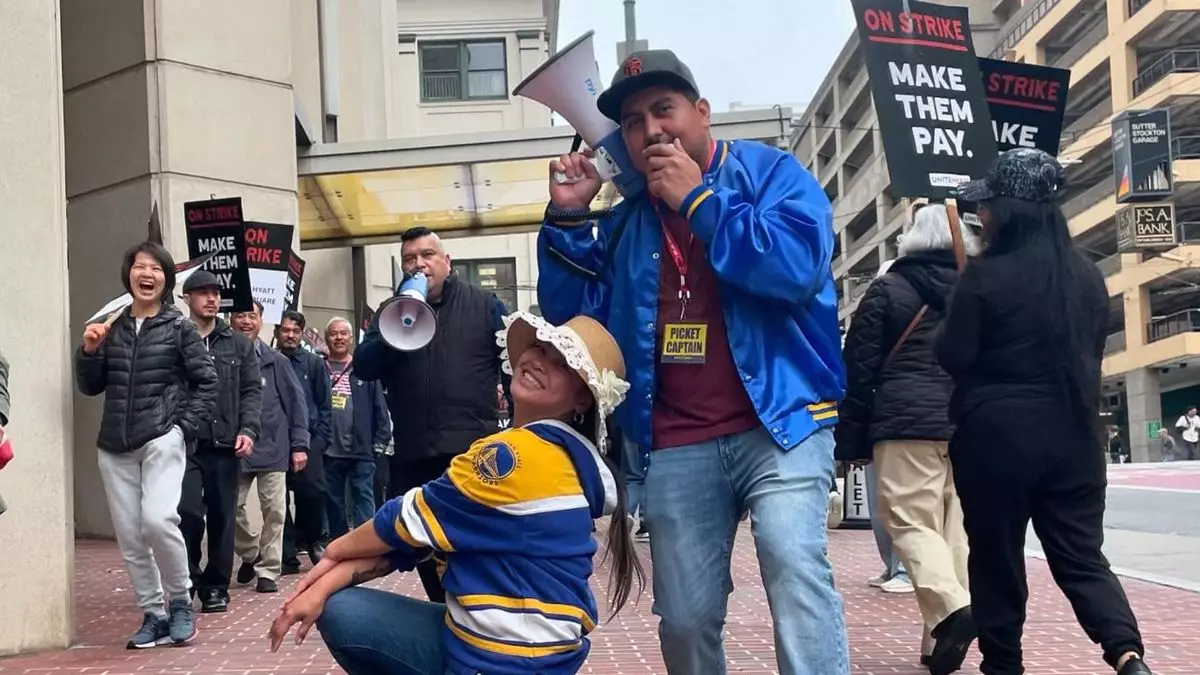The labor landscape in the United States is witnessing a significant transformation, particularly within the hospitality sector. Over Labor Day weekend, a wave of strikes erupted, with more than 1,500 hospitality workers in San Francisco leaving their jobs on September 22. This action reflects a growing discontent among hotel employees regarding their working conditions, pay, and the broader implications of ongoing economic challenges. The combined striking force, which now exceeds 2,200 workers across San Francisco and San Diego, signifies not only the urgency of the situation but also the solidarity of labor movements across urban centers.
The core of this labor action is spearheaded by Unite Here, a prominent union that represents hospitality workers. Their call for a national strike resonates in hotels operated by major chains like Hilton, Hyatt, and Marriott International. Notable properties affected include the Grand Hyatt San Francisco and Hilton San Francisco Union Square, which have become critical flashpoints in this labor dispute. The strike reflects deep-seated grievances among workers, who are seeking not just basic rights but a fundamental reassessment of their role in an industry that has historically struggled to recognize the value of its employees.
In a strategic move to amplify their message, Unite Here has called on travelers to refrain from patronizing hotels that are currently on strike. This decision is aimed at drawing public attention and urging hotel management to reconsider their treatment of workers. The potential suspension of services due to staffing shortages highlights the immediate consequences of this labor action, as hotel guests may find their experience compromised. Through resources like FairHotel.org, travelers are directed to find alternative accommodations and informed about which hotels are involved in the strikes, emphasizing the urgency of the situation.
The strikes in San Francisco are not isolated events; they form part of a broader movement affecting nine major cities across the United States. Hotel workers are united in their demands for essential improvements, including higher wages, better staffing ratios, and the restoration of service levels that were curtailed during the COVID-19 pandemic. Recent strikes, such as the one involving over 1,200 workers in Boston from September 19 to 21, further illustrate the growing trend of labor action across the nation. This collective push represents not just a fight for better conditions but also a renewed commitment to workers’ rights in the face of structural challenges in the hospitality industry.
As the strikes continue and gain visibility, the hospitality industry may find itself at a pivotal crossroads. The outcome of these labor actions could reshape the landscape for hotel workers, setting new standards for wages, working conditions, and overall treatment. If the current momentum persists, it may inspire similar movements across various sectors, reinforcing the idea that employees deserve a voice in their workplace. As we observe these developments, the implications for the future of labor relations in hospitality will be significant, paving the way for discussions about equity, respect, and sustainability within an industry that thrives on the contributions of its workforce.


Leave a Reply